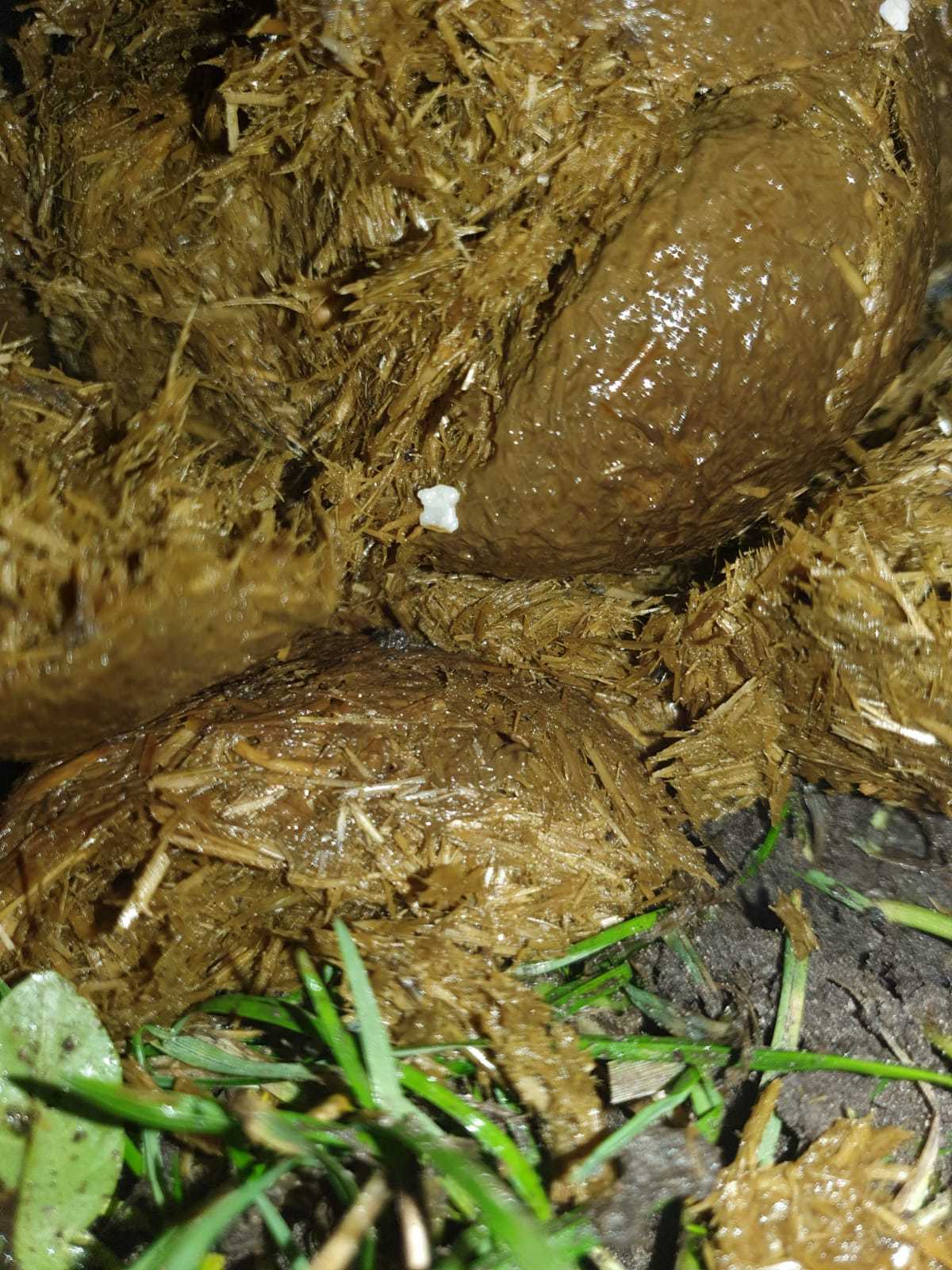The adult tapeworm usually resides near the transition from the small intestine to the cecum. There, the tapeworm can cause inflammation, which may result in colic. In the Netherlands, only one species is significant: Anaplocephala perfoliata. This is a short, yellow-green tapeworm with a triangular body, measuring between three and eight centimeters in length. The head of the tapeworm is equipped with four hooks, allowing the parasite to firmly attach itself to the intestinal mucosa of its host.
The tapeworm has an indirect life cycle. This means it needs an intermediate host to develop. The intermediate host for the tapeworm is a free-living grass mite that eats tapeworm eggs from the manure. These mites are found in large numbers in pastures and are also often present in hay and straw. The grass mites infected with tapeworm larvae are ingested by the donkey while grazing. The larvae then develop into adult tapeworms within 6–10 weeks. Old, overgrown pastures are a risk factor for donkeys, as many grass mites live there.
Tapeworm infections pose a risk to your donkey’s health. A few tapeworms are not a problem and are almost impossible to prevent. However, heavier tapeworm infections can cause various types of colic. Donkeys may show vague signs of colic over several weeks, with episodes becoming increasingly severe and more frequent. Occasionally, the animal may experience an acute, severe colic episode, which often results in an intestinal torsion. Usually, mild colic is seen as a result of a tapeworm infection, because food passes more slowly through the transition between the small and large intestine. The accumulation of food can cause the intestine to become overstretched at that point. Tapeworms are often found in clusters due to their specific and relatively small preferred location, namely the junction between the small and large intestine.
Because tapeworms release their eggs in packets, manure testing is not suitable for detecting tapeworms. Occasionally, tapeworm eggs are found during routine manure examination, but these are actually coincidences. The only thing you can conclude from this is that the donkey has tapeworms. On the other hand, if no eggs are seen in the manure, we cannot rule out that the donkey still has tapeworms. Since tapeworms shed their eggs in packets, there is also no correlation between any eggs found and the severity of the tapeworm infection, as is the case with other gastrointestinal worms.
The new EquiSal Tapeworm Test detects tapeworms based on the donkey's immune response. If tapeworms are present, the immune system produces very specific antibodies against tapeworm in the saliva. The EquiSal Tapeworm Test detects these specific antibodies. There is a direct correlation between the amount of antibodies in the saliva and the number of tapeworms present.
If the EquiSal Tapeworm Test shows that your donkey is infected with tapeworms, we will give you a personalized treatment recommendation. This way, your donkey’s health comes first, and you avoid unnecessary deworming. Please feel free to contact our team if you have any questions. Our enthusiastic team is happy to help!
